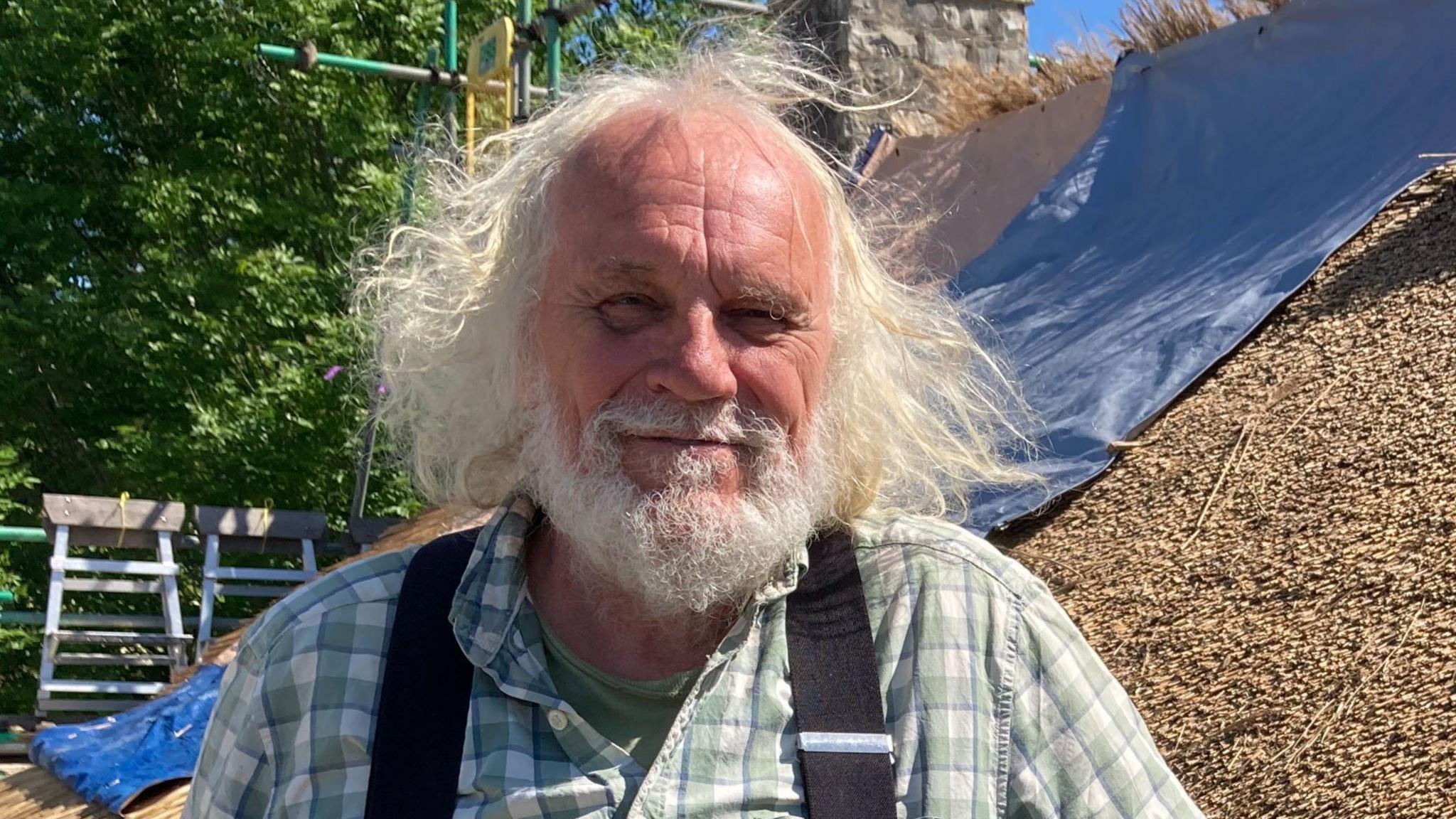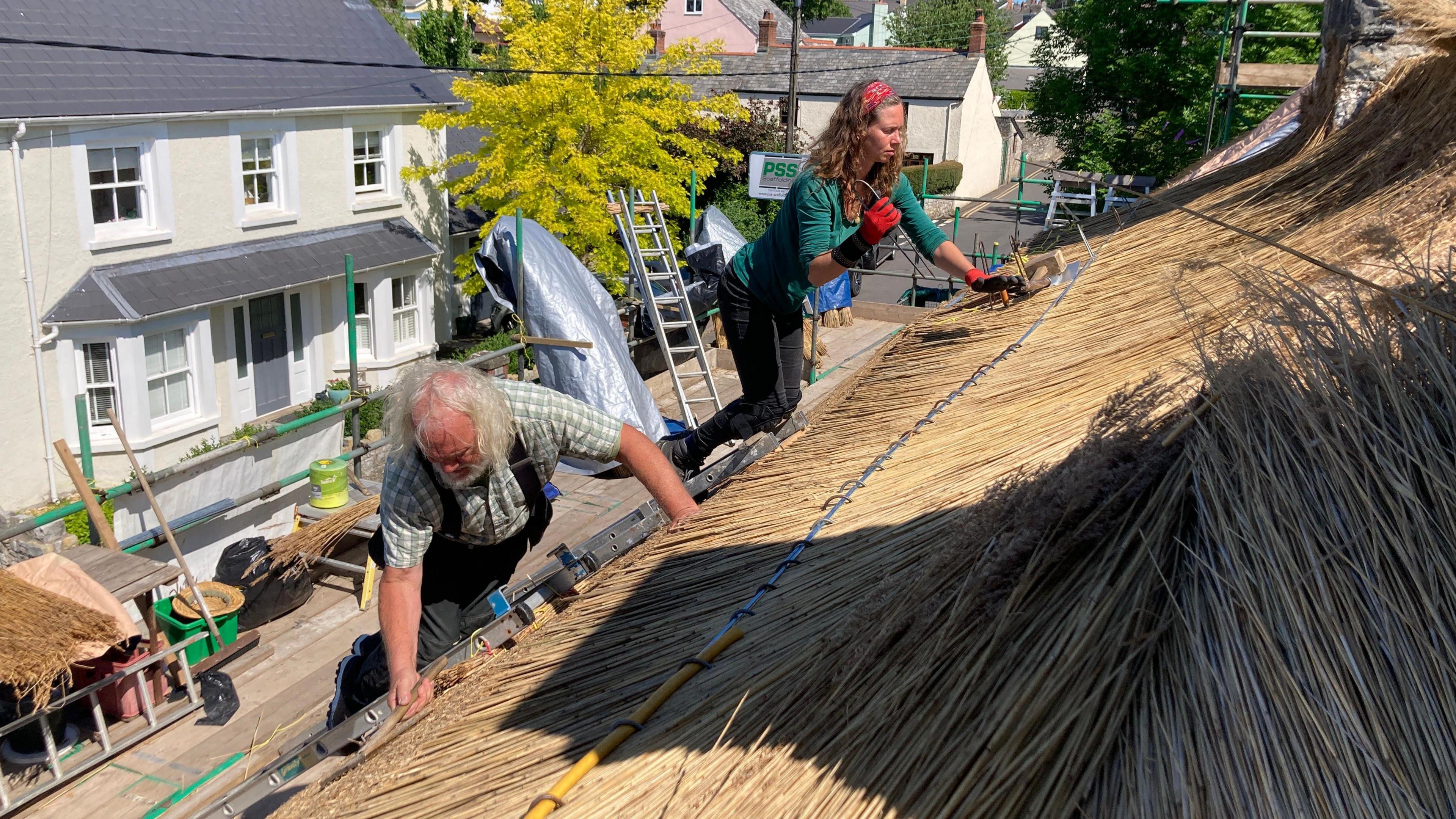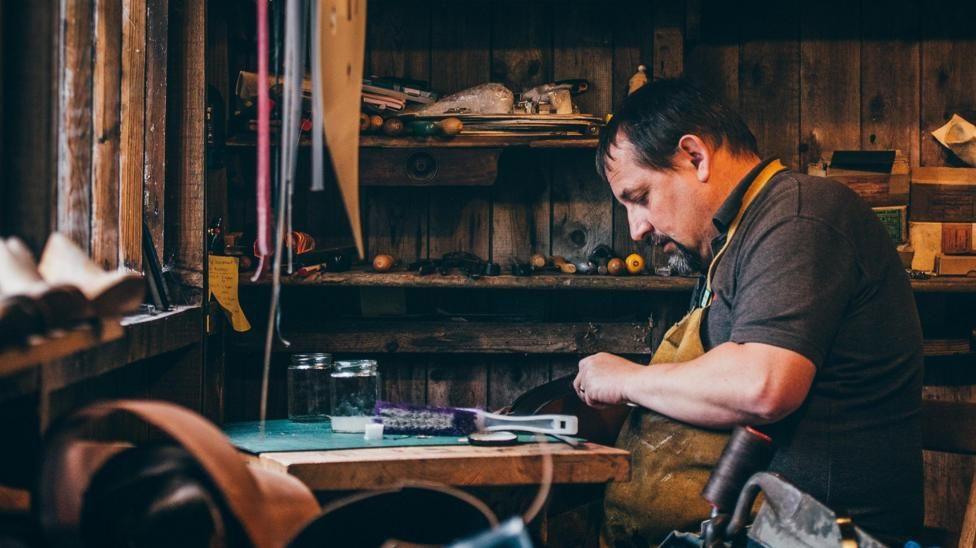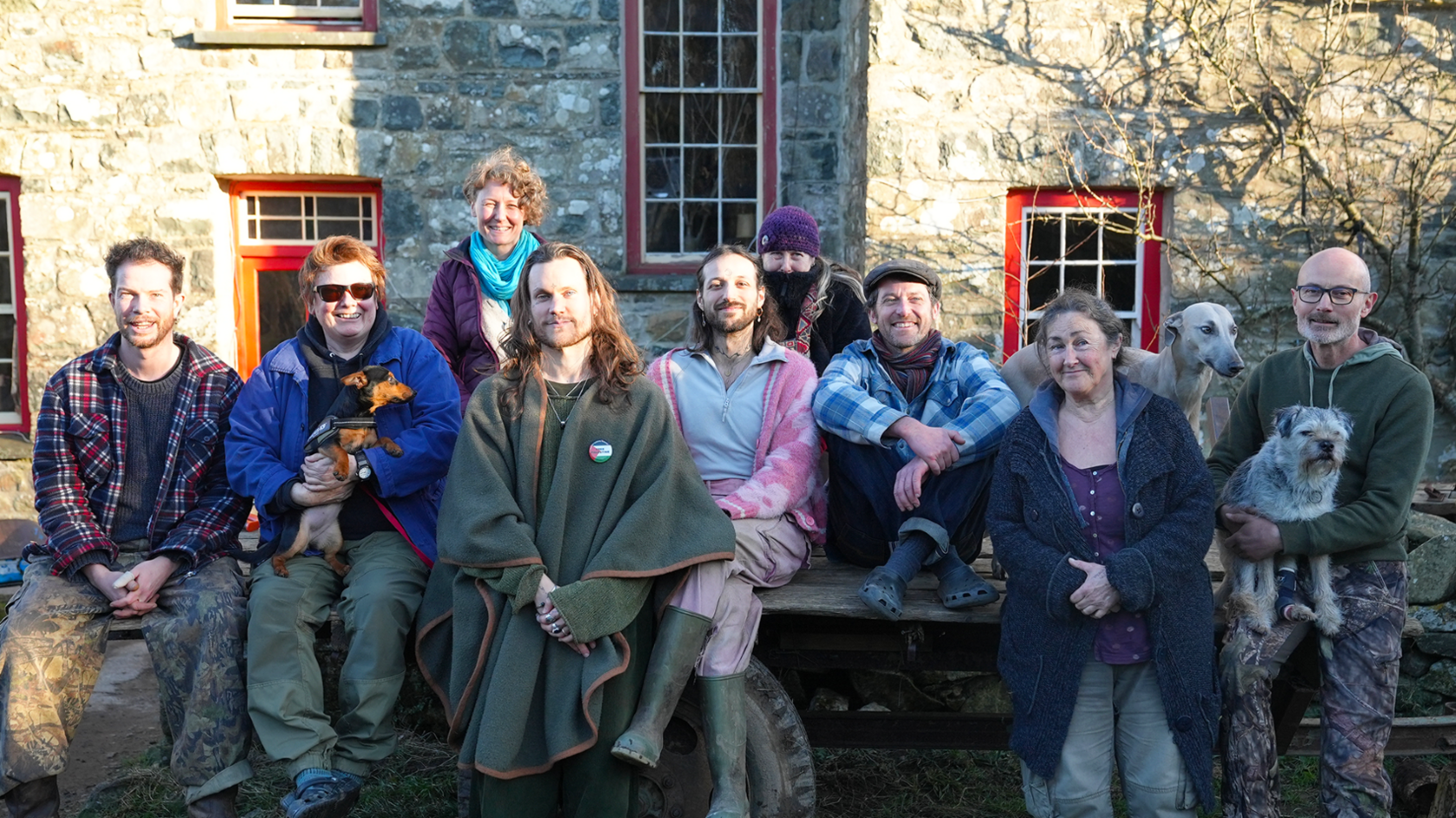Clog making and thatching - the people behind craft jobs at risk

Alan Jones is a master thatcher and believes that continuing the craft is important
- Published
Ever fancied a career weaving baskets, making helmets or building rattan furniture?
Those are some of the crafts that are falling out of favour, making it on to a list of endangered trades.
Research by Heritage Crafts, a charity which supports and promote traditional crafts, has identified 20 more crafts at risk of vanishing from the UK.
Research found that rising operational costs, a lack of structured training, and mounting market pressures are placing unsustainable strain on crafts that depend on expert hand skills.
Tiny homes: No mortgage, low bills and big dreams
- Published23 October 2022
'We run our homes without mains electricity'
- Published9 February
Can building your own home tackle housing crisis?
- Published25 August 2024
Crafts such as cut crystal glass making and fabric flower making are just some that have been classified as "critically endangered".
This means there is a shrinking base of craftspeople, limited training opportunities, low financial viability or there is no mechanism to pass on the skills and knowledge.
One craft that was added to the list this year is thatching, both Welsh and Irish vernacular.
Master thatcher Alan Jones and believes continuing the craft is important if people want to live a sustainable lifestyle.
He said: "In these days of high tech, people appreciate hand made because someone has put their heart and soul into it. Quite literally and that's valuable.

Alan currently has three apprentices to help him with his projects
"It's valuable because of heritage, it's a part of our story and where we came from and how we got to where we are as a society and part of a timeline for keeping the traditions going.
"Mass product isn't necessarily better. Hand made has a bit of heart to it."
Priya Pannochia has been working with Alan as an apprentice and believes her generation is "less and less interested in these old crafts".
She said: "A lot of these ways we are learning here is very natural in other parts of the world.
"It feels more to me like living in harmony with nature and knowing how to do things for ourselves.
"If one day I need to know how to make a fire, I know how to make one. If I needed to build a shelter, I know how to build one.
"So I feel that this is very important in general to remember these old ways and the crafts involved."
Some crafts classed as endangered include:
Armour and helmet making
Flax, hemp and nettle processing
Hazel basketmaking
Lace making
Lute making
Organ building
Quilting (in a frame)
Welsh double cloth weaving
Cut crystal glass making
Fabric flower making
Glove making
Rake making
Rattan furniture making
Thatching

Geraint Parfitt is one of only two makers in Britain who still creates clogs entirely by hand, in his workshop
Clog making, which sees the clogs made by hand, has also been classified as critically endangered.
Geraint Parfitt, one of only two makers in Britain who still creates clogs entirely by hand in his workshop at the National Museum of Wales, St Fagans, said he's happy there is recognition that these skills are being lost, but "it's sad that the list has to exist in the first place".
As the clogs are made to measure, Geraint draws around the person's feet.
"I then use a stump of straw and I cut it whole in my hand using three knives and then I do all the leather work, cut it and sew it by hand.
"People come back for an extra fitting to make sure everything is right and then I put them together and that's it. Simple," he said.
Geraint said it could take up to 10 hours of his working time but it can take up to six months before the clogs are ready due to working in the museum and speaking to the public.
"I do think people are starting to appreciate the old form but the challenge is to make a living out of it because people are not willing to pay for the time it takes to do these things," he said.
"They are willing to pay £50 an hour for their car to be fixed but not for me to make their shoes."
Daniel Carpenter from Heritage Crafts said the list underscores the need for investment and support to safeguard skills for the next generation.
"Reversing this decline would represent not just the continuation of skilled trades, but also a significant boost to the UK's cultural heritage and countless opportunities for future innovation," he said.
Related topics
- Published16 February

- Published10 May

